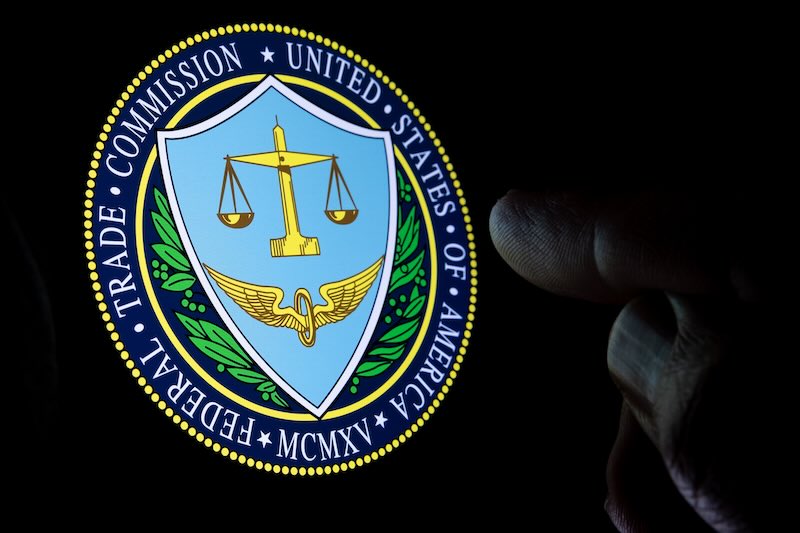
Faking Your Customer Reviews is Going to Cost You…BIG TIME
Faking Your Customer Reviews is Going to Cost You…BIG TIME
We’ve all seen it: a business gets a 1-star review online and feels they need to combat it. This is why 84% of consumers find online written reviews suspicious.
Many businesses follow ethical guidelines and reply to the poster, hoping to improve the situation and mitigate negative responses from readers. Others, however, have turned to a shadier path, creating their 5-star reviews to raise their scores and lure customers back. Some businesses have gone even further by hiring companies that generate fake reviews and testimonials via AI and other methods.
Table of Contents
Kay Dean calls out some of these offenders on her YouTube channel. She has plenty of data and support behind her exposing businesses to fake reviews.
If you or your business has generated fake reviews, you’ll want to remedy them quickly.
To protect consumers and ensure fair competition, the Federal Trade Commission (FTC) has announced a final rule targeting fake reviews and testimonials. Effective October 21, 2024, this rule marks a pivotal step in regulating deceptive advertising practices that have long plagued the digital marketplace.
The Importance of the New FTC Rule
Fake reviews and testimonials have been persistent, misleading consumers and unfairly disadvantaging honest businesses. FTC Chair Lina M. Khan emphasized the detrimental impact of these practices, stating, “Fake reviews not only waste people’s time and money but also pollute the marketplace and divert business away from honest competitors.”
The new rule empowers the FTC to impose civil penalties on violators, enhancing its ability to deter deceptive practices. This development follows a series of proposals and public consultations, reflecting the FTC’s commitment to refining its approach based on stakeholder feedback.
Key Provisions of the Rule
The final rule addresses several critical areas:
Fake or False Reviews and Testimonials: Businesses are prohibited from creating, buying, or disseminating reviews and testimonials that misrepresent the identity or experience of the reviewer. This includes AI-generated reviews and those from individuals without actual product or service experience.
Buying Positive or Negative Reviews: The rule bans businesses from offering compensation or incentives for reviews that express a particular positive or negative sentiment. This aims to ensure that reviews reflect genuine consumer experiences.
Insider Reviews and Testimonials: Reviews by company insiders, such as officers or managers, must disclose any material connection to the business. The rule prohibits undisclosed insider reviews and testimonials.
Company-Controlled Review Websites: Businesses must accurately represent that a website they control provides independent reviews. This ensures transparency and honesty in how reviews are presented to consumers.
Review Suppression: The rule prohibits using threats or intimidation to suppress negative reviews. It also needs to be more accurate in the comprehensiveness of reviews on a website.
Misuse of Fake Social Media Indicators: The sale or purchase of fake social media influence indicators, such as followers or views, is prohibited when used to misrepresent influence for commercial purposes.
Implications for Businesses
The FTC’s new rule signals a stricter regulatory environment for businesses that rely on consumer reviews and testimonials. Companies must ensure their practices comply with these regulations to avoid fines and reputational damage.
Businesses should review their current policies and practices, ensuring transparency and honesty in all consumer interactions. This includes auditing existing reviews and testimonials, training staff on compliance, and updating marketing strategies to align with the new rule.
Conclusion
The FTC’s final rule on fake reviews and testimonials is a crucial step toward a more transparent and fair marketplace. By holding businesses accountable for deceptive practices, the FTC protects consumers and promotes honest competition. As this rule takes effect, companies must adapt to these changes, prioritizing authenticity and integrity in their marketing efforts.
We can help you
At Share.One, we are reputation experts. Our mission is to provide high-quality video testimonials for your business in the most ethical, professional, and cost-effective way possible.
Meet with our team to discuss how Share.One’s approach delivers authentic, real experiences given by actual customers.
Let us help you recover your reputation and deliver REAL social proof for your social media, marketing, and ad campaigns.






No comment yet, add your voice below!